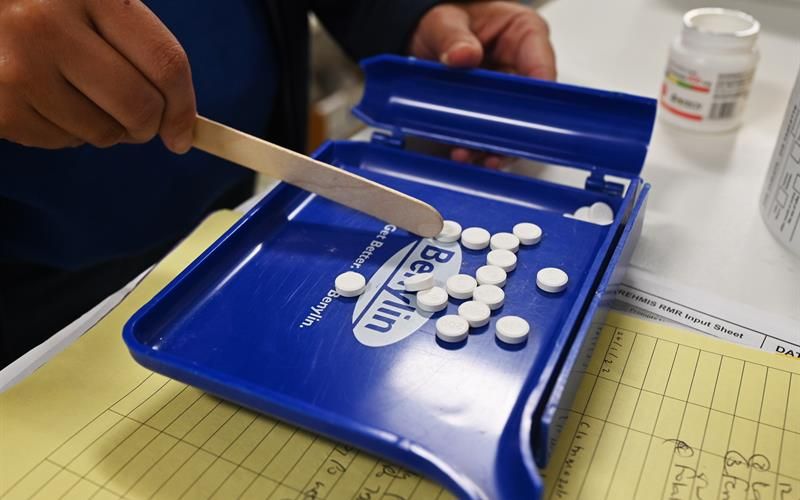Subtitle: Examining the Evolving Duties and Responsibilities of Pharmacists and Pharmacy Support Staff
The Expanding Role of Pharmacists and Pharmacy Support Personnel
As global public health struggles persist, the function of pharmacists and pharmacy support staff has become progressively vital. In urban areas, pharmacies experience a 7% annual growth in the volume of items dispensed, emphasizing their crucial role in preserving public health. The recent Pharmacy Month offered a fitting occasion to recognize and comprehend the critical role performed by these professionals within our communities.
City pharmacies dispensed over 6.4 million items in 2021/22, and the number increased to 6.8 million in 2022/23. These figures highlight the indispensable nature of pharmacies in delivering healthcare services to the public. Some of the most frequently dispensed medications within City Health include those for tuberculosis and HIV/AIDS management. Furthermore, vaccines constitute an essential component of extensive immunization programs for children.
This year’s Pharmacy Month theme aimed to inform the public about the varied roles of pharmacists and pharmacy support staff in providing primary healthcare services. The focus was on promoting immunization adoption and raising awareness about adverse drug identification and reporting, allowing for a deeper understanding of these professionals’ multifaceted responsibilities.
Key Responsibilities of Pharmacists and Pharmacy Support Staff
Pharmacists’ duties extend beyond merely dispensing medication; they are also accountable for the proper storage and maintenance of medications, including vaccines and temperature-sensitive medication. This crucial aspect of their work guarantees that medicines remain effective and safe for use.
To enhance efficiency and minimize patient waiting time, staff pre-package medications for chronic patients. This practice not only assists chronic patients in refilling their prescriptions more quickly but also reduces waiting time for other customers, creating a more efficient pharmacy experience for all.
Advising patients on potential adverse reactions to medications and offering guidance on safely managing prescriptions is another critical aspect of a pharmacist’s role. This counsel is particularly essential for individuals taking multiple medications, as pharmacists can help detect and prevent dangerous interactions.
Importance of Proper Medication Disposal
Expired or unwanted medication poses a potential hazard to public health, and pharmacists actively promote their proper disposal. The public is encouraged to return expired or unwanted medication to their nearest clinic or private pharmacy for safe disposal. This practice helps prevent accidental ingestion by children or pets and shields the environment from hazardous substances.
Councillor Van der Ross underscores the importance of properly disposing of expired medications, stating, “Most of us have medicine cabinets or drawers at home, and it’s very likely that some of the items have expired. Let’s all do a thorough check and see what needs to be disposed of. Please also remember not to leave medication lying around, particularly if you have small children or pets in the home. Medication is designed to save lives, but if used incorrectly, it could potentially cause great harm.”
The rising volume of items dispensed by urban pharmacies is a testament to the growing role of pharmacists and pharmacy support staff in ensuring public health and safety. As primary healthcare providers, they tirelessly deliver essential services to the community. Pharmacy Month provided an appropriate occasion to appreciate these professionals and raise awareness about their vital roles in protecting our health. As global health challenges continue, the importance of pharmacists and pharmacy support staff will only become more pronounced.









